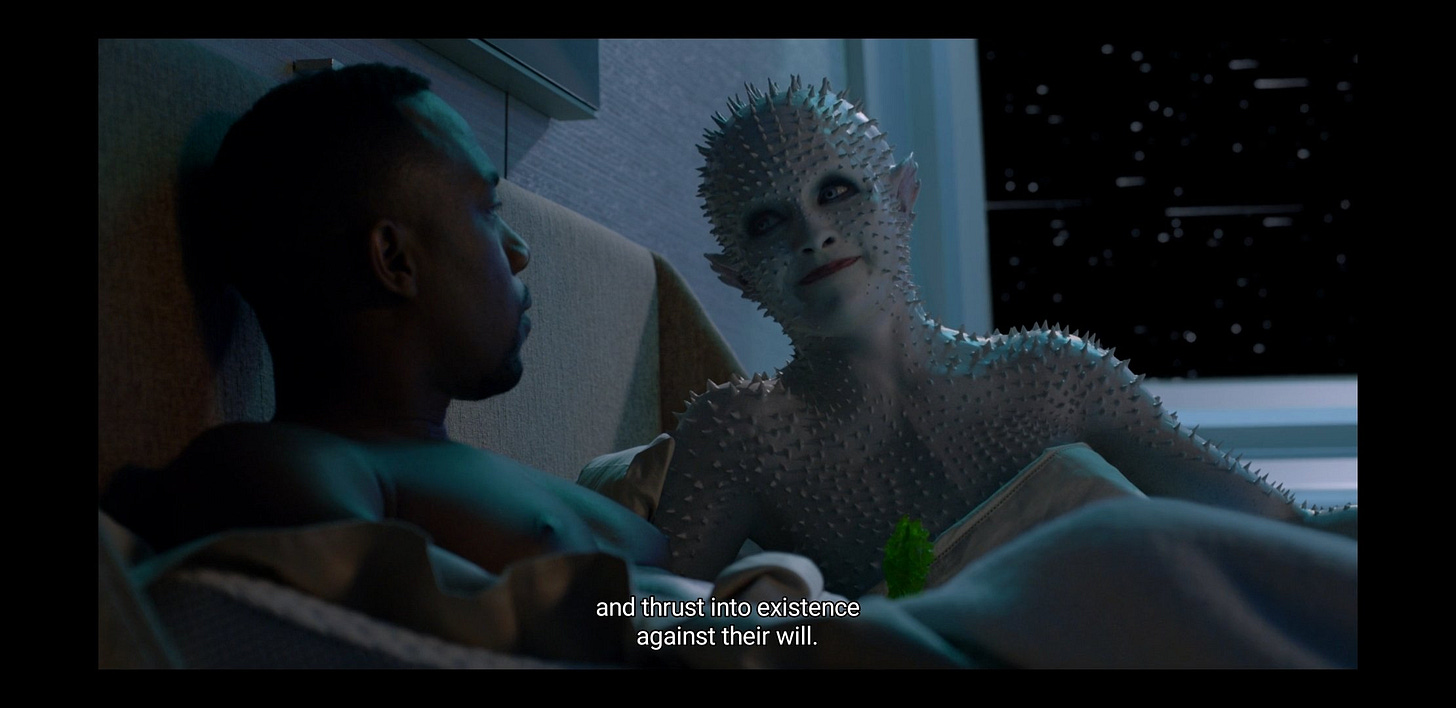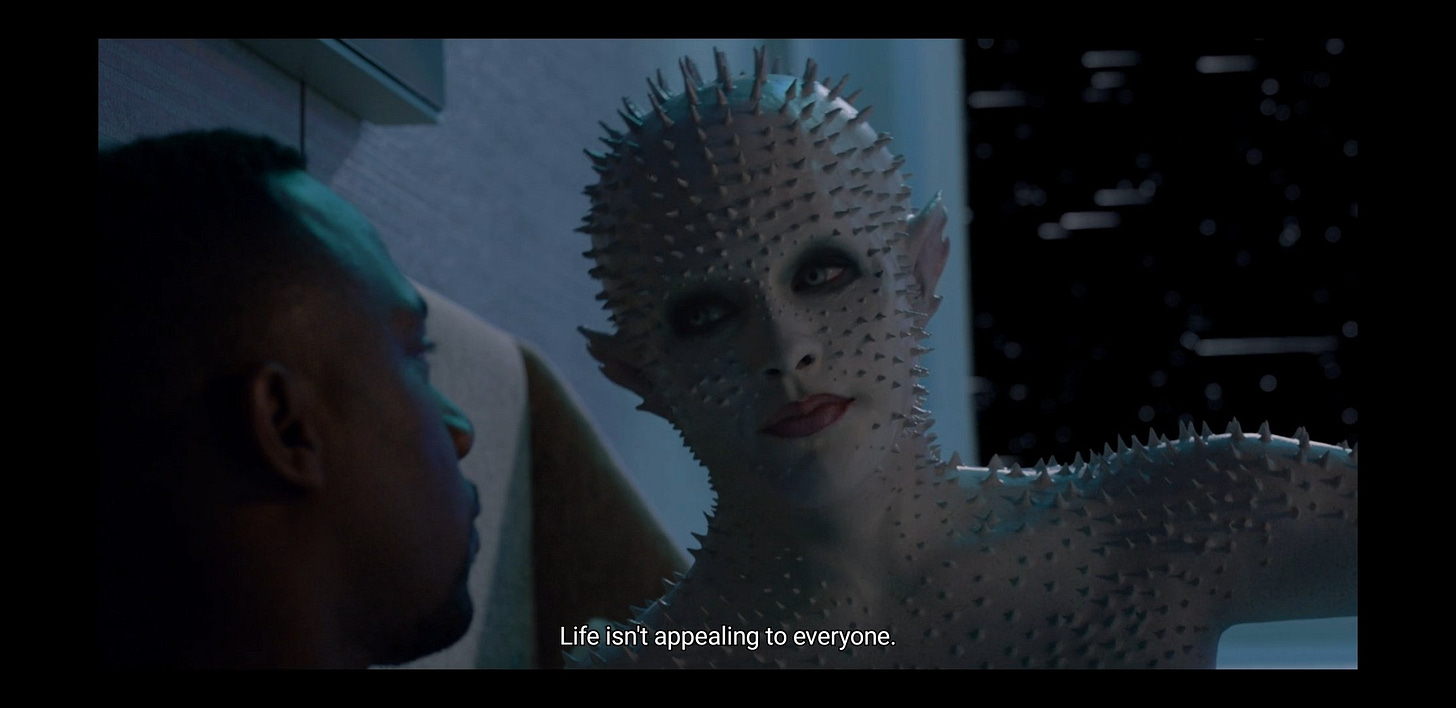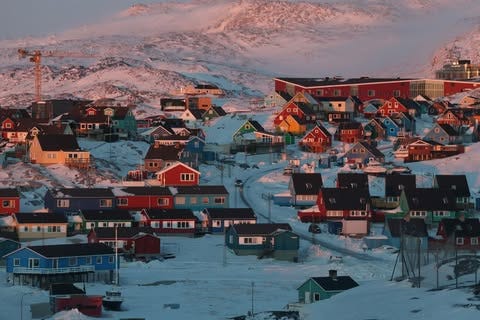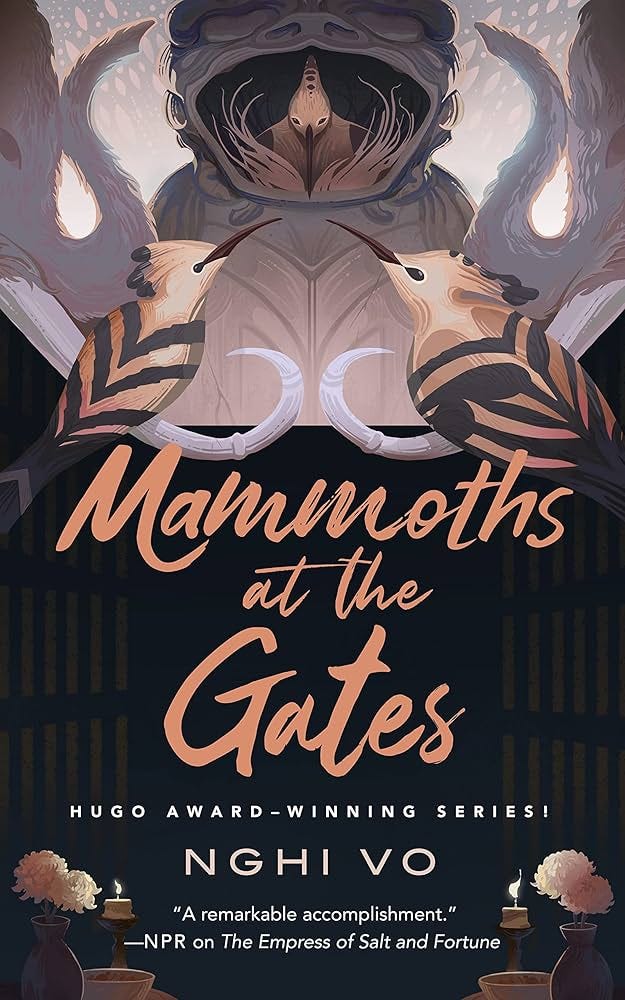This week…
Your reading time is about 5 minutes.
NOTICE: THIS SECTION DISCUSSES THE RIGHT TO DIE AND SUICIDE.As you know, the past week I have been working on completing my final assignment for my public law course. Before I started my assignmnet, I narrowed down my case studies to two subjects, one of which was on the right to die.
In the end, my essay topic was about the very opposite(?) end of the issue—the right to life. I felt that the lines of reasoning for the right to life are firmer, recognised as one of the fundamental and basic human rights, and I would not be too swayed by philosophical what-ifs. Legal arguments must be based on facts, as I am constantly reminded by Siva, my lawyer friend, whom I have never won a debate with. :)
However, I feel—without much consideration about facts and ethics—that people do have the right to die. I just could not, at this point in time, form a solid defence against the slippery slope argument in euthanasia debates about how it could lead to broader, unintended applications. If euthanasia is allowed for terminal illness, what about chronic illness? Or mental suffering? Or what if it’s just because. (I think that’s fine.)
It reminded me of a scene from first episode of the third season of The Orville. I had to log back into my abandoned XTwitter account (yuck) to pull out these screenshots, because I remember posting about it when I first saw it in 2022.
In this scene, John, a human, and Irillia, a Dakeeli, discussed the suicide of another character, Isaac. (Nevermind that Isaac was a Kaylon, an artificial lifeform species.) Irillia shared that in her culture, suicide is not seen as something to grief about, because it is simply a personal choice.
And then, there is also the consideration that it could be quite possible that private (for-profit!) firms would be outsourced to perform assisted dying services, because the practice, as the argument goes, is against the Hippocratic Oath of the health care industry. Now that’s messy. You know, like how the private prison industry makes money off mass incarceration, so their entire business model is based on getting and keeping prisoners... There are enough vulnerable people to be taken advantage of. This is not something to write within a 2,000-word constraint. I would have too many flowery words, none of them courtroom-permissible.
Your Wikipedia this week: Sorites paradox
Anyway, the most interesting part about sharing this reflection is that I had to check my Substack stats to find where most of my readers are based. As I have made known multiple times here, I am not a fan of collecting or knowing your personal data points that you cannot opt out of. However, it is a conventional journalistic practice that where whenever suicide is discussed, we ought to provide details to a helpline. I still know the Befrienders hotline in Malaysia by heart, 03-7627 2929 or email sam@befrienders.org.my, but many of you are from the following countries:
Suicide Crisis Helpline
Canada/US: 988
France: 3114
UK: 0800 689 5652
Spain: 024
Australia: 13 11 14
And now, a selection of top stories on my radar, a few personal recommendations, and the chart of the week.
ICYMI: The Previous Block was about the oligarchy, geopolitics, and AI in education. FWIW:
Zelenskyy’s language strategy hit a wall in White House by Ilka Gleibs for LSE.
Chinese people compare Trump’s authoritarianism to Mao and Xi by Noor Al-Sibai for Futurism.
AI chatbots can cushion the high school counselor shortage but are they bad for students? by Tara García Mathewson for The Markup.
I used to teach students. Now I catch ChatGPT by Troy Jollimore for The Walrus.
CORRECTION NOTICE: None notified.ON SCAMS
The South Pacific fugitive who crowned himself king
Sean Williams for The Guardian:
Years before, Noah Musingku and his brother had devised a scheme they called the Pei Mure Association, spinning a wild, picaresque tale that might have been torn from the diaries of one of Bougainville’s early European interlopers. Pei Mure – “the law of King Pei” – had been forged at an ancient, Edenic kingdom called Papaala, whence he claimed the island’s first ancestors had come. A conclave of chiefs had revived the law in 1922, Musingku said, and added plans to implement a new world banking system.
In 1997, a financial crisis rocked Asia and destabilised the Papua New Guinean economy. Schemes with names such as Bonanza, Windfall, Gold Money and Money Rain proliferated across the nation, promising investors fantastical returns. U-Vistract, which promised up to 100% returns each month, was different. Musingku positioned himself as a man of deep faith, preaching a prosperity gospel that resonated with people crawling from war to deprivation. He sermonised to U-Vistract investors for hours, and demanded their unalloyed loyalty; he created a government, renaming months of the year for gemstones, a move that drew comparisons to the cargo cults prevalent across the Pacific.
Loosely linked:
Forced to scam others worldwide, now held in detention on the Myanmar border by Huizhong Wu, Jintamas Saksornchai and Martha Mendoza for AP.
A network of agents in India is driving job scams and illegal migration by Neha Mehrotra for New Lines Magazine.
Call-centre crypto scammers unmasked as data leak exposes their schemes by Frédéric Zalac, Paul Émile d'Entremont and Jeff Yates for CBC.
ON THE MEDIA
Journalism can thrive without billionaire owners
Gretel Kahn for RI:
The return of Donald Trump to the White House has put media ownership back on the spotlight. A few days before the 2024 presidential election, the Washington Post’s billionaire owner Jeff Bezos prevented his newspaper from endorsing Kamala Harris. As a result, up to 250,000 readers cancelled their subscriptions, making the company lose around 10% of its subscriber base.
Bezos, whose company donated $1 million to Trump’s inauguration and signed a $40 million deal for a documentary about his wife Melania Trump’s life, is an extreme example of an issue that’s playing out in many other countries: the risk of powerful owners influencing editorial decisions.
But this is not the only viable ownership model. Many digital news organisations are now owned by journalists and media workers in a way that protects their work from undue influence from politics and business alike.
With quotes from the editors of five of outlets in Argentina (Tiempo Argentino), France (Mediapart), Scotland (West Highland Free Press), Spain (elDiario.es) and Uruguay (La Diaria). Loosely linked:
A quest for evidence: What drew leading women data journalists to the field
Amel Ghani for GIJN.
News deserts are expanding in Latin America, leaving communities vulnerable to disinformation and polarisation by Silvia Higuera for LJR.
ON ETHICS
WHO leaves poor countries exposed to dangerous drugs ($)
Vidya Kirhsnan and Arshu John for Himal Southasian:
The Gambia is the smallest country on mainland Africa, and among the most densely populated. According to 2023 figures from its health ministry, the country has just six major health centres and eight hospitals. It has no local pharmaceutical manufacturers, meaning all of its medicines are imported, and it has no local drug-testing laboratories to check the quality of imported drugs.
After the children started dying, samples of the cough syrups they had consumed had to be sent for testing first to Senegal and Ghana, then to France and Switzerland. Despite doctors immediately raising the alarm over the syrups, it took months for the Gambian government to confirm what they and the families had been saying all along: It was the Indian medicines that had killed them.
Open access link via Pulitzer Center here. Loosely linked:
The basis of eugenics: Elon Musk and the menacing return of the R-word
Justin Kirkland for The Guardian.
Banning first cousin marriage would be eugenic and ineffective by Dominic Wilkinson (University of Oxford) for The Conversation.
For an anaesthesiologist, intuition stands between life and death by Ronald W Dworkin (University of Virginia) for Aeon.
Assisted dying: The UK’s real problem with palliative care by Nick Triggle by BBC.
Humane's Ai Pin was a flop; now recycling nightmare by Adam Smith for Context.
Other curious links, including en español et français
LONG READ | They wanted to save us from a dark AI future. Then six people were killed by J. Oliver Conroy for The Guardian.
INFOGRAPHIC | Conflict in Congo is ready to explode by Prasanta Kumar Dutta, David Lewis, Reade Levinson, Jon McClure and Sonia Rolley for Reuters.
Quería llevar una IA conmigo a todas partes. Me ha cambiado el día de forma radical por Carlos Zahumenszky en El Confidencial.
Detrás de un sugar daddy: todas las advertencias por Mariana Ortiz, ilustración de Rafael González en Gatopardo.
Cómo resolvemos conflictos en los espacios virtuales por Ana Mercedes López Rodríguez (Universidad Loyola Andalucía) en The Conversation.
Chaque personne a le droit de savoir sur quels fondements l’algorithme s’est prononcé par Nicolas Arpagian dans Franceinfo.
En France, les journalistes indépendants à la conquête de YouTube par Alexandra Klinnik dans Méta-media.
Mais où est passé le civisme depuis la pandémie? par Denis Wong et Émilie Robert dans Radio-Canada.
What I read, listen, and watch
I’m reading Mammoths at the Gates (2023), the fourth novella in the The Singing Hills Cycle series by Nghi Vo, a contemplation of death, legacy, and the preservation of the tradition of grief.
I’m listening to not another Conspirituality episode, this time of MAHA’s soft eugenics. Is it even soft?
I’m watching a National Geographic show, Trafficked by Mariana Van Zeller about crypto scams.
Chart of the week
From Statista’s Katharina Buchholz report for International Women’s Day with data from the World Bank.










